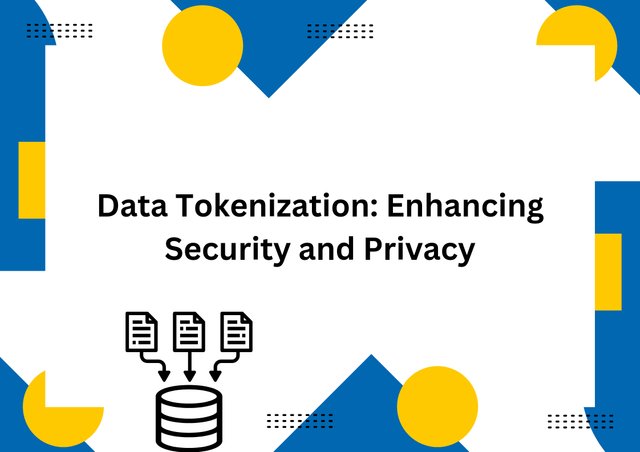Data Tokenization: Enhancing Security and Privacy
Introduction:
Data tokenization stands as a pivotal strategy in modern data management, particularly in the context of enhancing security, privacy, and regulatory compliance. It involves the transformation of sensitive data, such as credit card information or personal health records, into tokens. These tokens serve as unique identifiers that can be securely transmitted, stored, and processed without revealing the original data. By adopting data tokenization, organizations can mitigate the risks associated with unauthorized access, data breaches, identity theft, and regulatory non-compliance.
Understanding Tokens:
Tokens, as non-mineable digital units, exist as registry entries within blockchains. They come in various forms and standards, including ERC-20, ERC-721, ERC-1155, and BEP-20, each serving different purposes within blockchain ecosystems. Unlike native cryptocurrency coins such as Bitcoin or Ether, tokens are transferable units of value issued on top of a blockchain. They can represent currencies, assets, or even encoded data, making them versatile instruments for digital transactions and record-keeping.
Differentiation from Encryption:
While encryption involves converting data into an unreadable format using secret keys, tokenization replaces sensitive data with non-sensitive tokens without relying on decryption. For instance, a credit card number can be tokenized into a unique string of characters, enabling secure payment transactions without exposing the original card number. This distinction makes tokenization particularly suitable for scenarios requiring data security and compliance, such as payment processing and personally identifiable information management.
Data Tokenization Process:
Consider the scenario of migrating personal data across social media platforms. With data tokenization, users can link their digital identity to a blockchain-based wallet, such as Metamask, facilitating seamless data transfer. By connecting the wallet to the new platform, personal history, connections, and assets are automatically synced, preserving the user's digital footprint across platforms. This approach ensures data portability while maintaining privacy and security standards.
Benefits of Data Tokenization:
The adoption of data tokenization offers several benefits, including enhanced data security, regulatory compliance, and secure data sharing. By replacing sensitive data with tokens, organizations can reduce the risk of data breaches and identity theft while meeting stringent regulatory requirements. Additionally, tokenization enables secure data sharing across departments, vendors, and partners, enhancing collaboration without compromising data integrity or privacy.
Challenges and Limitations:
Despite its advantages, data tokenization presents certain challenges and limitations. Tokenizing data may impact data quality and interoperability, potentially affecting user experience and system functionality. Moreover, tokenization raises legal and ethical questions regarding data ownership, consent, and governance, necessitating careful consideration and adherence to regulatory frameworks.
Data Tokenization in Practice:
In sectors such as healthcare, finance, media, and social networks, data tokenization has emerged as a valuable tool for enhancing security and privacy. By tokenizing sensitive information, organizations can safeguard data while enabling secure transactions and interactions across digital platforms.
Conclusion:
In conclusion, data tokenization offers a robust solution for enhancing data security, privacy, and compliance in an increasingly digital world. Its adoption across various industries underscores its effectiveness in mitigating risks and ensuring secure data management practices. However, addressing challenges such as data quality, interoperability, and governance is crucial for realizing the full potential of data tokenization in safeguarding sensitive information and maintaining trust in digital ecosystems.


https://twitter.com/SibanandaMaha14/status/1790795836684722434?t=YUyNBWKFQMTZtcndfqI10Q&s=19
Congratulations, your post has been upvoted by @dsc-r2cornell, which is the curating account for @R2cornell's Discord Community.
It's a clever approach, and I can see why it would be appealing to businesses handling sensitive information. I'm curious to understand how tokenization might affect data quality and what specific issues it could cause for user experience or system functionality. As a user, those potential downsides would concern me...